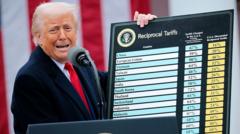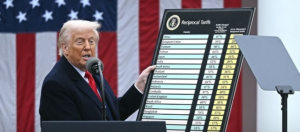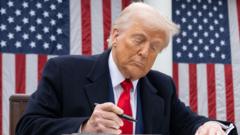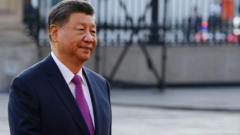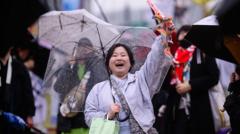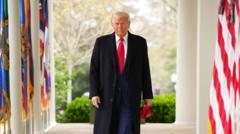Immediate waves of financial decline envelop South Korea following the unexpected declaration of martial law by President Yoon Suk-yeol, while analysts predict lasting impacts on the economy and market confidence.
Political Upheaval in South Korea Triggers Market Instability

Political Upheaval in South Korea Triggers Market Instability
As martial law is briefly declared and lifted, South Korea faces significant economic uncertainties amidst turbulent political climate.
South Korea’s financial markets experienced notable turbulence on December 3, 2024, as investors grappled with the ramifications of a fleeting martial law declaration by President Yoon Suk-yeol. After a tense overnight period, stocks plummeted, with the benchmark Kospi index down approximately 2 percent during early trading in Seoul. Major corporations felt the impact, with shares in Samsung Electronics falling over 1 percent, while LG Energy Solution and Hyundai Motor saw declines exceeding 2 percent.
Following the abrupt martial law declaration late Tuesday, the South Korean won initially wavered but began to stabilize, trading down about 1 percent against the dollar as markets opened on Wednesday. In response to the unfolding situation, Finance Minister Choi Sang-mok convened urgent meetings with central bank officials and financial regulators to devise an ongoing risk management strategy, promising “unlimited liquidity support” to mitigate market disturbances.
Choi emphasized the government’s commitment to shielding the economy and maintaining dialogue with authorities from other key economies, pledging proactive measures to address economic challenges and facilitate daily activities. Meanwhile, the Bank of Korea announced an emergency meeting, following last week’s unexpected interest rate cut, which was justified by emerging uncertainties in growth and inflation patterns, largely attributed to changes in U.S. administrative policies.
With opposition lawmakers calling for Yoon’s resignation, concern swells regarding the longevity of South Korea's political unrest and its repercussions on market, consumer, and business confidence. Analysts from ING suggest this turmoil may inflict a lasting impact reminiscent of the aftermath of South Korea's 2017 presidential impeachment.
Although there are fears over potential credit rating consequences, consensus among some economists indicates that South Korea’s democratic institutions have historically managed similar crises effectively, with minimal disruption expected to business activities and supply chains. Nevertheless, investors remain on edge as the Asia Pacific market remained relatively stable with slight dips observed across Japanese, Australian, and Hong Kong indexes amid South Korea's political tensions.


